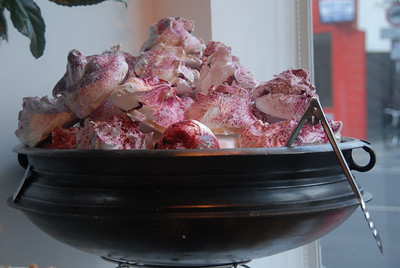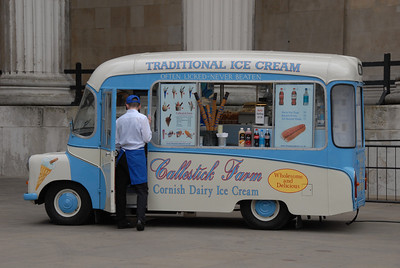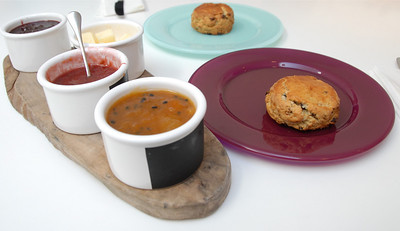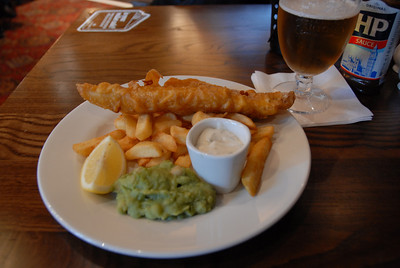
This week I’ve been working in England, a country much maligned for yet also quite obsessed with its cuisine. Mention that you write about food and suddenly everyone wants to have a discussion with you. Opinions vary on what constitutes good English food. For some it’s the infusion of other cultures and cuisines that has elevated British cooking. After all, the Indian-inspired chicken tikka masala has become the national dish of England. For others it’s a nostalgia for the past, for Sunday roasts and British sweets.

For many it’s the local, seasonal movement. Daily farmers’ markets thrive in London. Cheese, bread and butcher shops showcasing English-produced goods abound in the city. Stores stocked with local honeys, preserves and condiments blossom. The country is even producing its own white wines. While I can’t attest to the quality of wine, I can vouch for the deliciousness of other homegrown goods.

Ask what sparked this passion for good food and you’ll get a range of responses. The end of WII rationing, which really didn’t end until the 1950’s, slowly opened doors for better cooking. (Rationing and the resultant apathy about cooking are often blamed for England’s terrible culinary reputation.) Immigration and the introduction of different cuisines bolstered the English spirit for good, flavorful food. Likewise, gastronomic writers such as Elizabeth David reinvigorated passions as did celebrity cooks and chefs such Delia Smith, Nigella Lawson and Jamie Oliver.

Of course, if you stick to the tourist trail, you’ll still think that British cuisine consists solely of fish, chips and mushy peas. Venture off the beaten path, though, and you’ll find that the English are quite passionate about food.